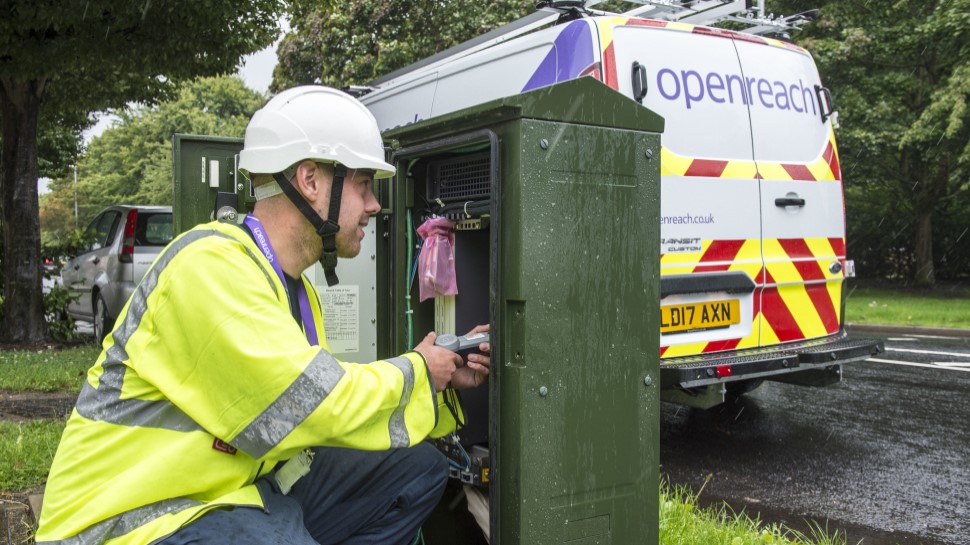BT staff vote to go on strike amid pay dispute
National strike is first for three decades

Sign up for breaking news, reviews, opinion, top tech deals, and more.
You are now subscribed
Your newsletter sign-up was successful
BT’s frontline staff have voted to go on a national strike for the first time since privitsation in the 1980s in a dispute over pay.
The Communication Workers Union (CWU) balloted nearly 40,000 Openreach engineers and BT call centre workers over industrial action after failing to reach an agreement with the company over a new pay deal that takes into account the rising cost of living.
BT had offered a £1,500 pay increase for staff at BT, Openreach, Plusnet, and EE, stating that this was an 8% increase for some employees and a rise of 3% for even the best-paid frontline workers. It said that this was the highest pay rise to frontline staff in more than two decades.
BT strike
However, this offer was rejected by the CWU, which wants a 10% increase that reflects the 9.1% inflation rate and delivers a wage increase in real terms.
Industrial action means that customers who suffer from connection issues will find it difficult to contact customer services or get the fault resolved by an engineer at a time when connectivity is more important to society than ever before.
“For the first time in nearly four decades, we are faced with national level strike action across BT Group,” said CWU general secretary Dave Ward. “Our membership faced the challenges of home working, high staff turnover, and a real culture of fear created by senior management to deliver an overwhelming show of support for strike action.
“Without CWU members working across BT Group, there would have been no home-working revolution. This work, which was done under great difficulty and often came with tremendous personal sacrifice, delivered £1.3 billion profits for the company.
Sign up to the TechRadar Pro newsletter to get all the top news, opinion, features and guidance your business needs to succeed!
“Over £700 million was paid out to shareholders. The company’s CEO, Philip Jansen, handed himself a £3.5 million pay package – a 32% increase. Over £700 million was paid out to shareholders, and the Chief Financial Officer was handed £2.2 million – a 25% increase.
“The reward for our members? The imposition of a below-inflation increase – the very same workers who delivered profits that more like lottery numbers than actual wages.”
The CWU says it is still committed to meaningful discussions and it is inviting BT for more talks to avoid strikes. BT says it is disappointed with the outcome of the ballot.
“BT Group awarded its highest pay rise for frontline colleagues in more than 20 years – an average 5% increase and up to 8% for those on the lowest salaries,” said a spokesperson. “At the same time, we’re in the middle of a once-in-a-generation investment programme to upgrade the country’s broadband and mobile networks.
“These investments are vital for the benefit of our millions of customers and for the UK economy. Above all, they are central to the success of this business – and its colleagues – now and in the future.
“Our job is to balance the competing demands of BT Group’s stakeholders and that requires careful management, especially in a challenging economic environment. The result of the CWU’s ballot is a disappointment but we will work to keep our customers and the country connected.”
- Here are the best broadband deals on the market
Steve McCaskill is TechRadar Pro's resident mobile industry expert, covering all aspects of the UK and global news, from operators to service providers and everything in between. He is a former editor of Silicon UK and journalist with over a decade's experience in the technology industry, writing about technology, in particular, telecoms, mobile and sports tech, sports, video games and media.